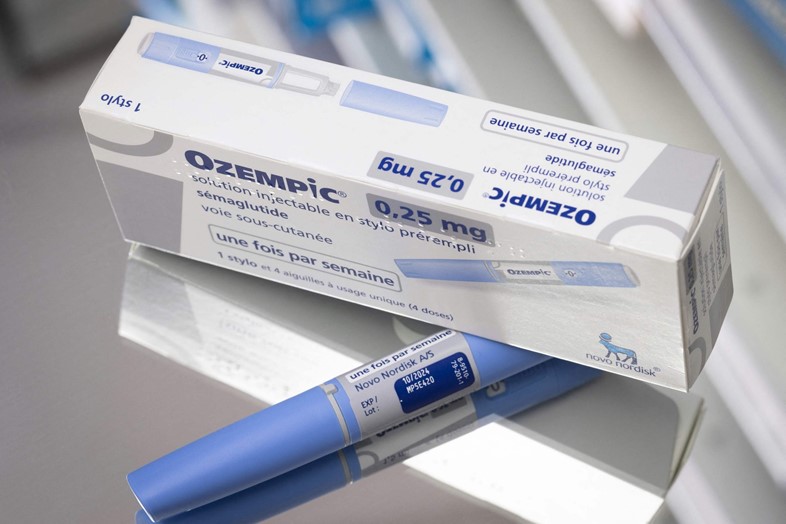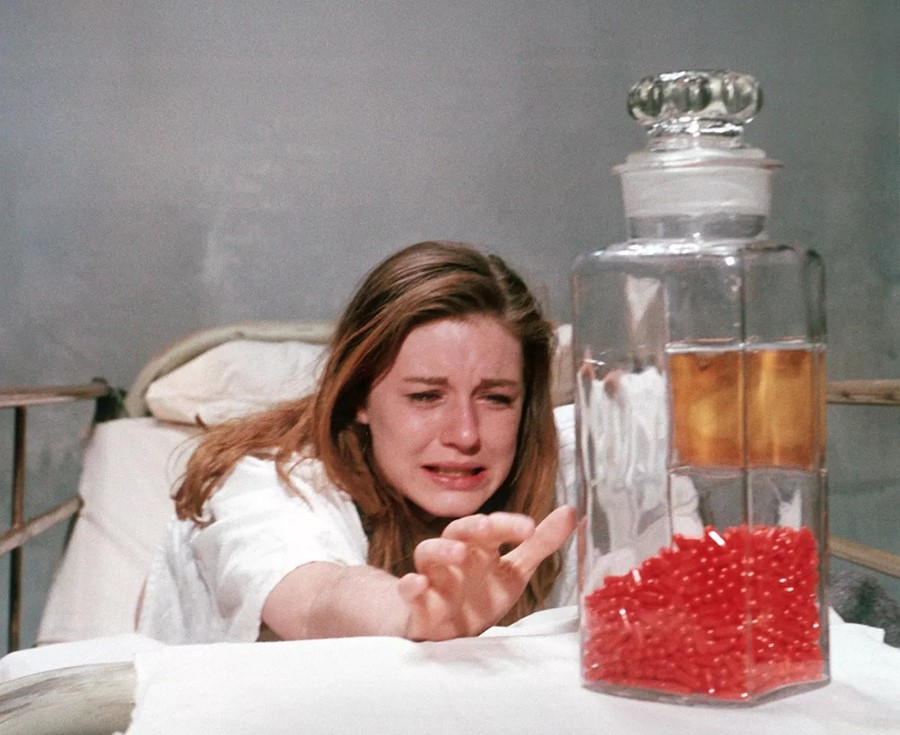There is a ‘price to be paid’ for taking the weight loss drug, according to those who helped develop it in the 70s
A scientist whose work in the 1970s helped pioneer weight-loss drugs like Ozempic has warned that people will struggle to take it for more than a few years because it takes the pleasure out of eating. “Once you’ve been on this for a year or two, life is so miserably boring that you can’t stand it any longer and you have to go back to your old life,” Professor Jens Juul Holst said in an interview with Wired.
Over the last few months, Semaglutide – sold under branded names Ozempic and Wegovy, among others – has come to dominate the cultural conversation thanks to its off-label use as a weight-loss drug. The medication originally created to treat diabetes by regulating blood sugar levels, has also been found to greatly suppress one’s appetite and slow the rate at which the stomach empties. This has meant it’s become very popular among people looking to lose weight, and words like ‘miracle’, ‘revolutionary’, ‘silver bullet’ and ‘holy grail’ are being thrown around when talking about the drug. According to some reports, there is mass usage of the drug in Hollywood, Manhattan and it’s now apparently making its way through Westminster.
Holst, a professor in the Department of Biomedical Sciences at the University of Copenhagen, first began researching GLP-1, the hunger-regulating hormone which is mimicked by Semaglutide, in the 1970s. It was his work developing treatments around GLP-1 that directly led to the creation of Semaglutide, although initially the scientists were working on cures for duodenal ulcer disease before realising it had benefits for people with diabetes and then for weight loss and obesity.
Semaglutide is not without its side effects, however. Nausea, dizziness, constipation, vomiting and diarrhoea often come as part of the package, while patients have also reported hair loss and a gaunt face – “Ozempic face” – as a result of rapid weight loss. Renal failure, pancreatitis and intestinal obstruction might develop in rare cases. Alongside this, according to Professor Holst, is a loss of joy when it comes to food. “What happens is that you lose your appetite and also the pleasure of eating, and so I think there’s a price to be paid when you do that. If you like food, then that pleasure is gone,” he warned.
But it’s not just one’s appetite for food that seems to be suppressed. Reports have been emerging that people are also losing the desire to do everything from drink alcohol to smoke cigarettes and even go shopping and bite their nails. Lab mice taking GLP-1 drugs are better able to say no to cocaine. In an article published by The Atlantic, one woman’s experience of taking semaglutide is described as a switch being flipped in her brain. “The desire to shop had slipped away. The desire to drink, extinguished once, did not rush in as a replacement either. For the first time – perhaps the first time in her whole life – all of her cravings and impulses were gone.”
It is likely that this is happening because GLP-1 drugs may alter the brain’s fundamental reward circuitry – i.e. it affects dopamine pathways in the brain so that the same reward (be it eating, sex or other activities which normally trigger a dopamine hit in the brain) brings less pleasure. Aside from anecdotal evidence, however, the majority of research on this relationship has been on animals and thus more human trials are needed, which may disprove the drug’s effectiveness in addiction.
Another concern is that once you stop taking the drug, the effects are often reversed when it comes to weight which could mean the same will happen with addiction. “The weight comes back; the suppression of appetite goes away,” as Dr Janice Jin Hwang told The Atlantic. And people don’t seem to be staying on the drug. In 2020, research found that 70 per cent of patients on GLP-1 stopped taking them within two years.
“One of the reasons, as I said, is that once you have tried it and you realise you’ve lost interest in food, then that may be enough. We don’t know why people stop taking these drugs, but we know for a fact that they do stop,” Holst told Wired. “I don’t see that a huge part of the population will be put on Wegovy and will stay on Wegovy for the rest of their lives – I simply don’t see that picture, because this hasn’t happened with other GLP-1 drugs.”

Even if GLP-1 medication does turn out to be effective at curbing all cravings and addictions, not everyone thinks that a drug which suppresses and frees you from desire is a positive thing. “The notion of an Ozempic era, full of people who are paying a fortune to no longer be able to enjoy one of humanity's great pleasures, is just unbelievably depressing,” writes Vanity Fair editor Katey Rich.
Is there something dystopian in a drug which numbs people to pleasure and indulgence – particularly in a culture which often encourages strict self-discipline and suppression? Will it create a stoic society where people can bio-hack their bodies for maximum focus and efficiency, without the distraction that comes from having needs? A whole workforce engineered to exist as robots without the urge for food, drinks, sex or any other kind of craving?
In Aldous Huxley’s 1932 dystopian tale Brave New World, pleasure is a priority and it’s achieved through the mass proliferation of soma, a mood-altering drug which blocks negative emotions. The result is a society which is completely numb through pure bliss, and therefore complacent and compliant. Will Ozempic offer the opposite – numbness through the suppression of desire? “Choosing to take pleasure is the least I could do for myself in a system that’s hell-bent on making me a little worker bee – in a society that praises people for not being hungry,” dietitian Christyna Johnson says in a Vice article.
On the other hand, addiction ravages people, families and communities – Stanford University estimated that 1.2 million people in the US and Canada will die from opioid overdoses by the end of the decade – and if there is a medication that can help without the side effects of drugs like methadone, surely that can only be a good thing.
Without more research and time to study the long-term effects of drugs like Ozempic, it is impossible to know what will happen. In the meantime, it will pay to be cautious of any drug that is hailed as a miracle – particularly when it comes to the weight-loss industry which has a long history of medication which turns out to be too good to be true.
Join Dazed Club and be part of our world! You get exclusive access to events, parties, festivals and our editors, as well as a free subscription to Dazed for a year. Join for £5/month today.




